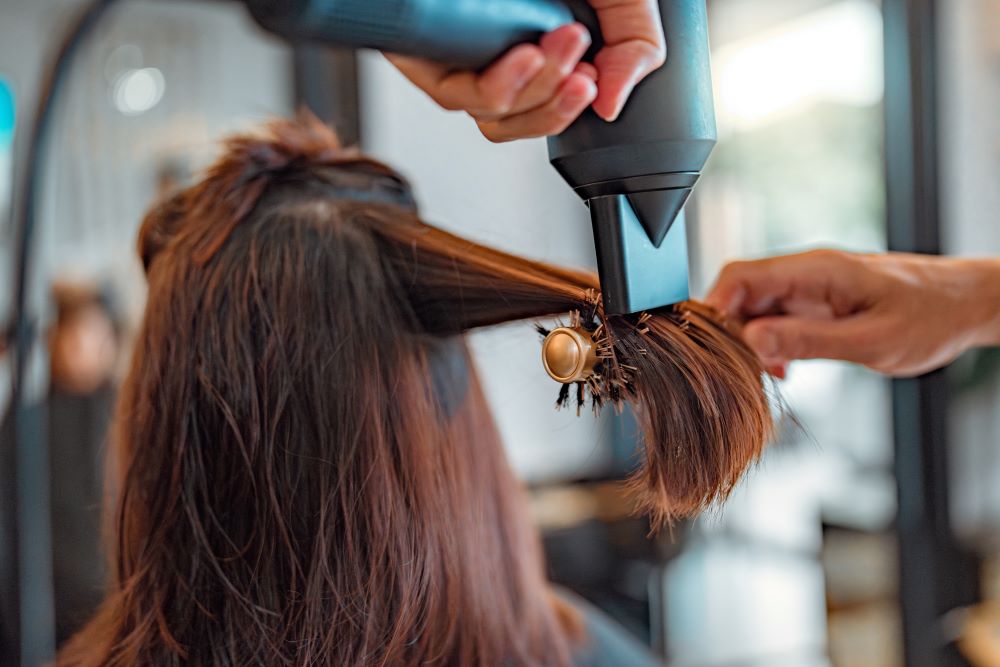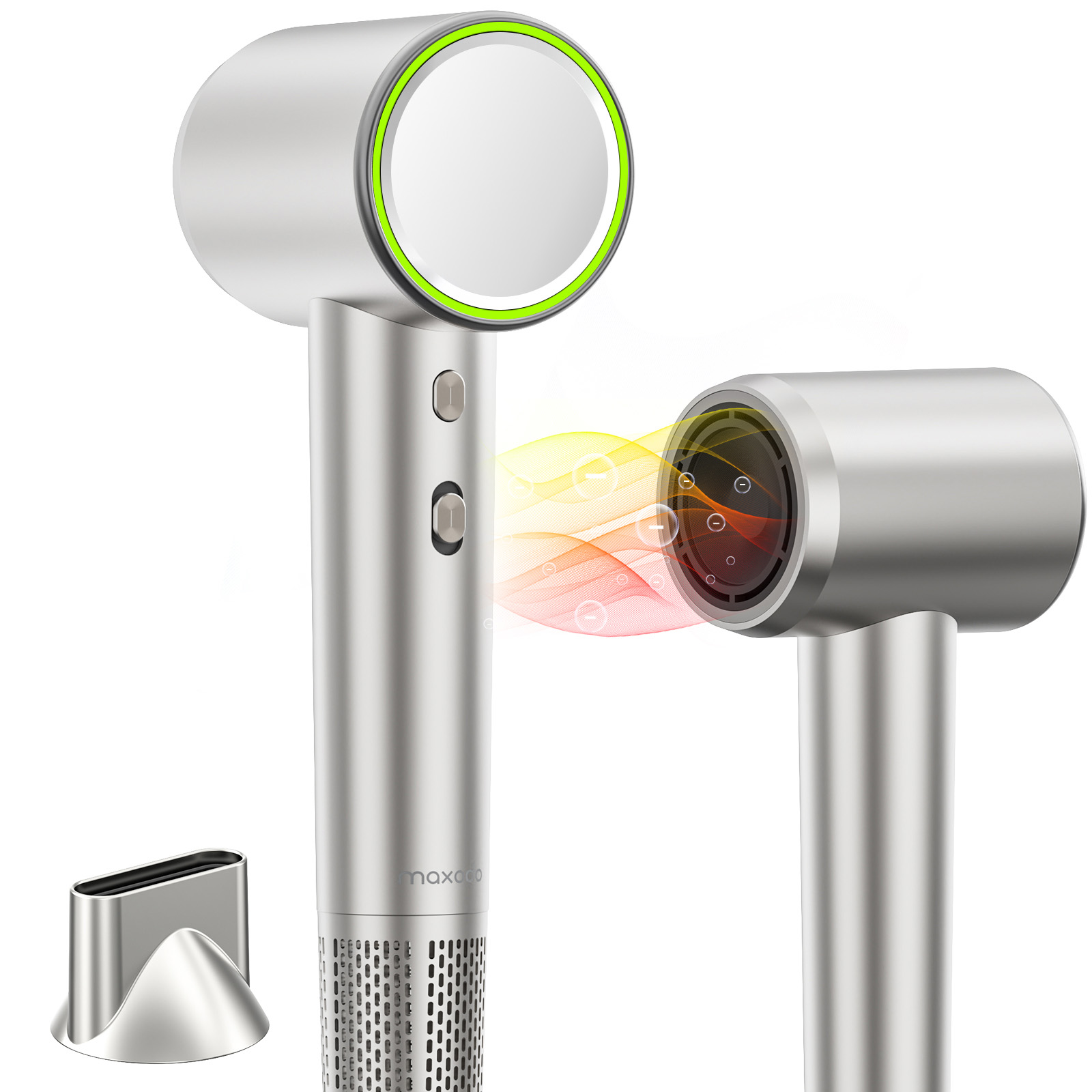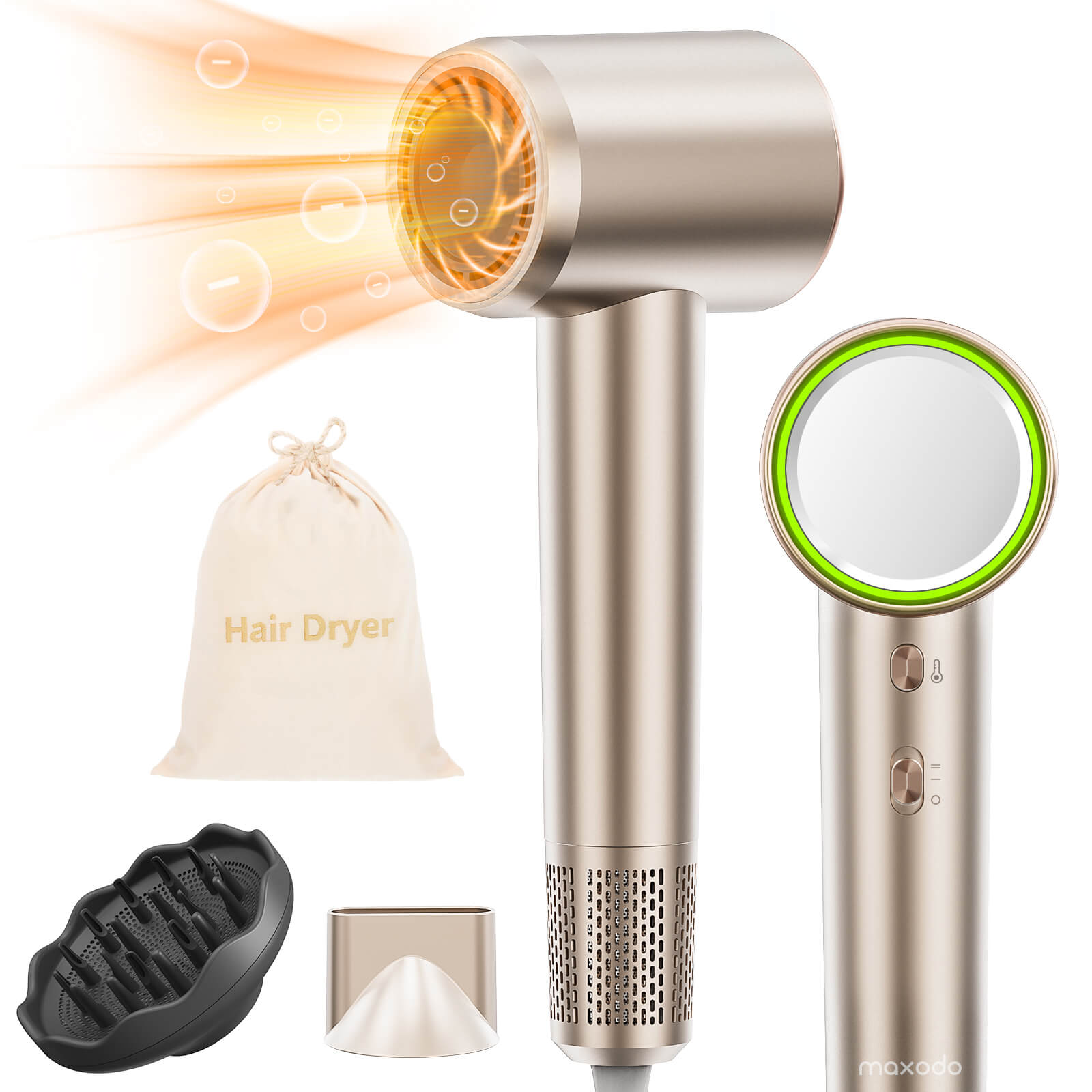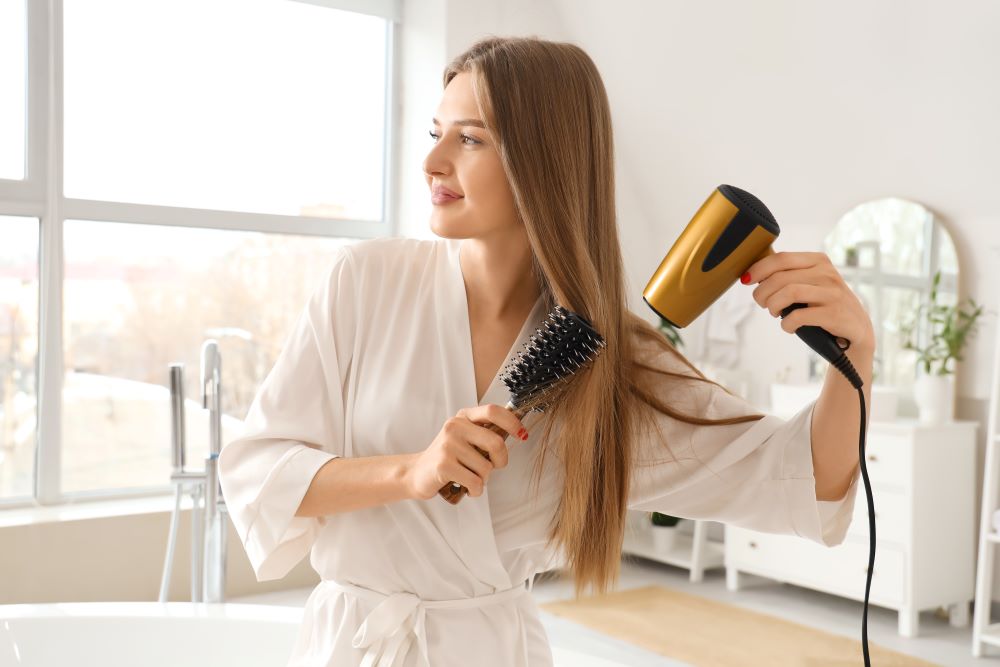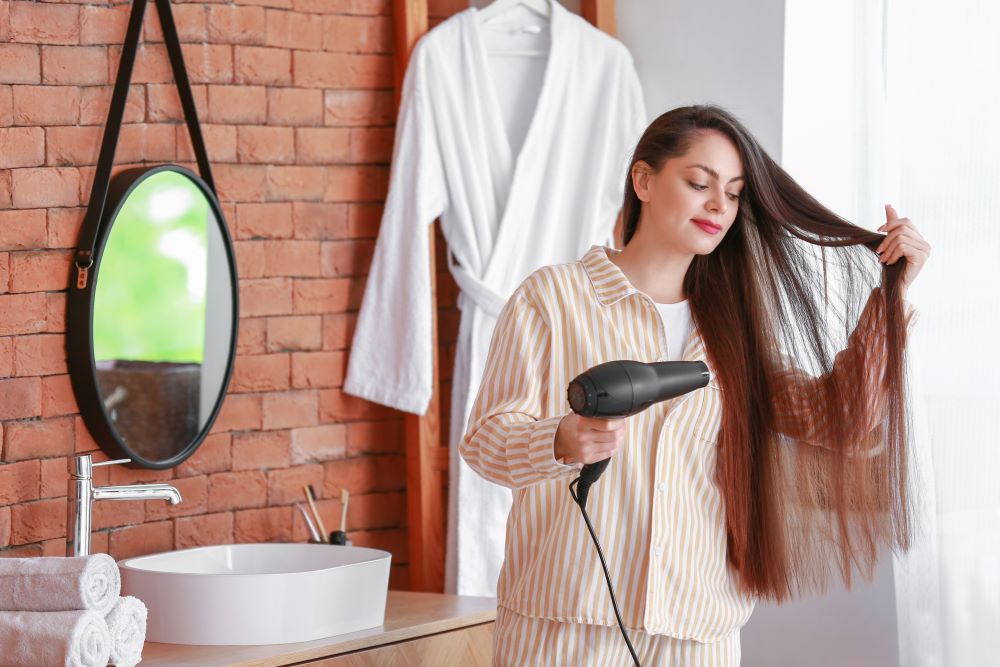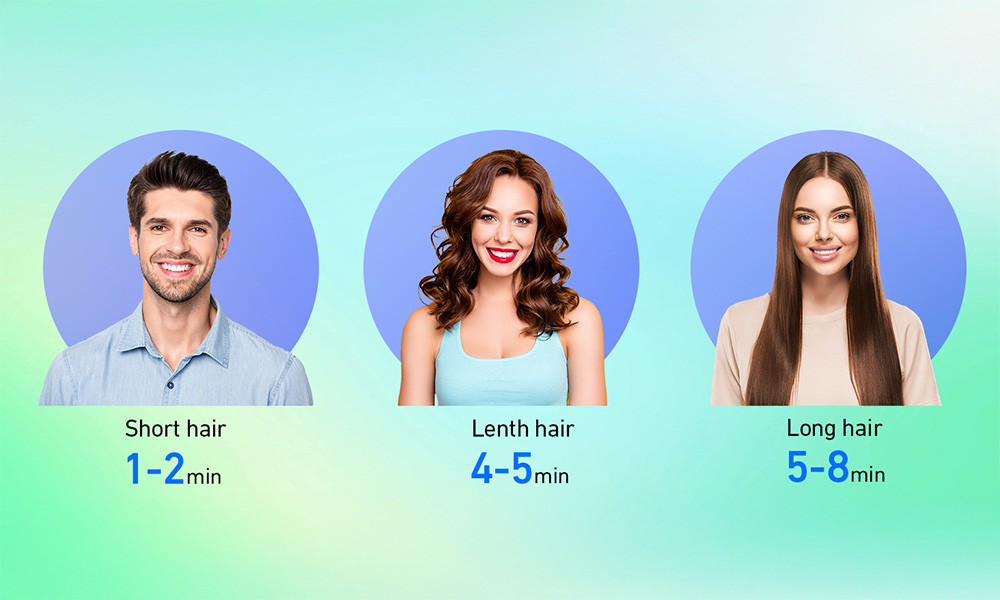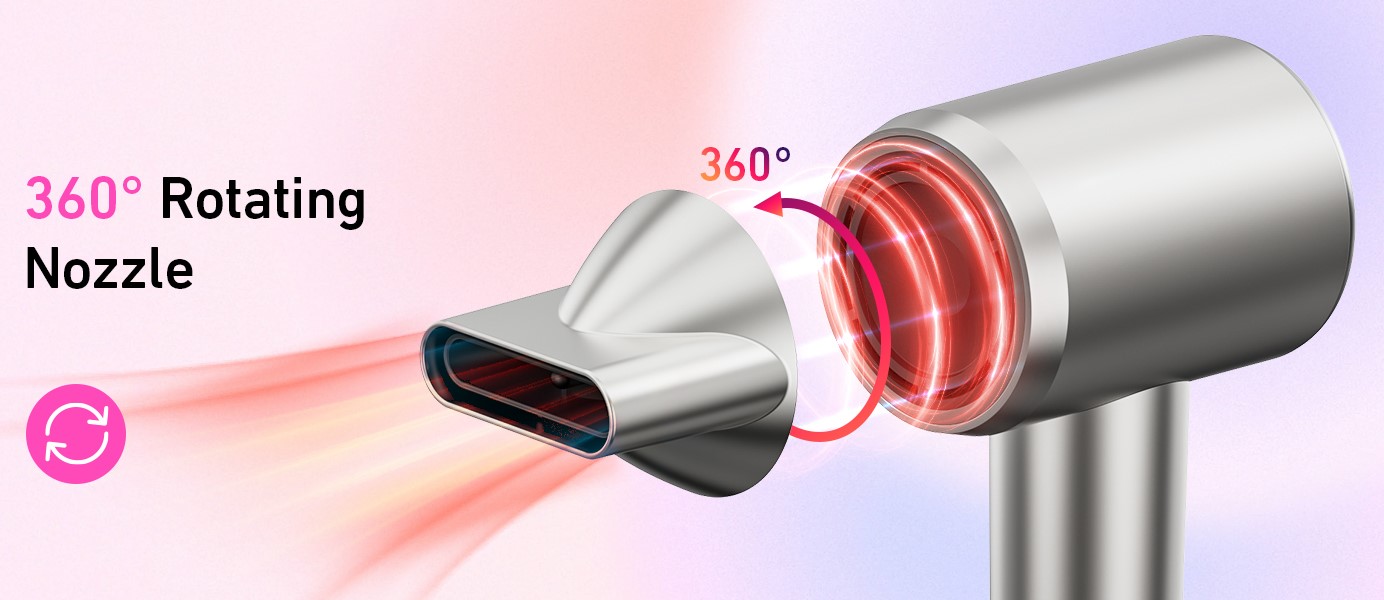
- Home
- Hair Dryer
- Comparisons
- Ionic vs. Traditional Hair Dryers: Key Differences Explained
Ionic vs. Traditional Hair Dryers: Key Differences Explained
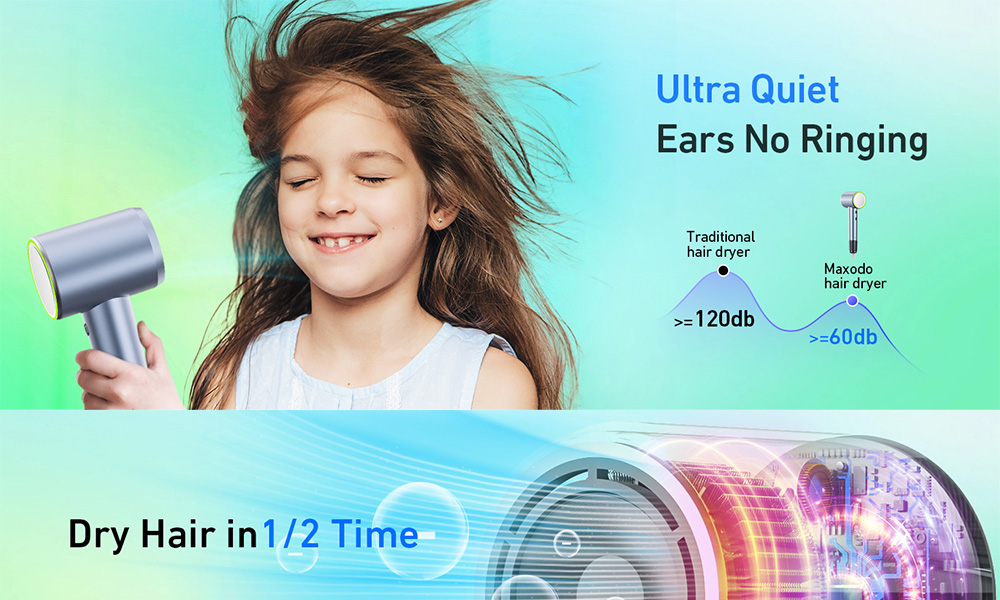
When it comes to hair styling tools, the hair dryer is a staple in many households and salons. It’s essential for quick drying and helps in styling, but not all hair dryers are created equal. The market is flooded with various types, each boasting different technologies and benefits. Among the most discussed are ionic hair dryers and traditional hair dryers. In this comprehensive guide, we will explore the differences between ionic and traditional hair dryers, helping you understand which might be the best fit for your hair care routine.
What is an Ionic Hair Dryer?
An ionic hair dryer is a modern hair styling tool that uses advanced technology to enhance the hair drying process. Unlike traditional hair dryers that simply blow hot air, ionic hair dryers emit negatively charged ions. These negative ions break down water molecules on the hair faster, leading to quicker drying times. This technology not only speeds up the hair drying process but also promotes numerous benefits for the hair’s health and appearance.
Benefits of Ionic Hair Dryers
Faster Drying Times: The emission of negative ions allows ionic hair dryers to break down water molecules faster than traditional dryers. This significantly reduces the drying time, which is particularly beneficial for those with thick or long hair who typically spend a lot of time blow-drying.
Reduced Frizz and Static: Negative ions neutralize the positive ions that cause static and frizz in the hair. This results in smoother and sleeker hair after drying. Ionic dryers are ideal for individuals living in humid climates or with naturally frizzy or static-prone hair.
Healthier Hair: By reducing the drying time, ionic hair dryers minimize the exposure of hair to prolonged heat, which can be damaging. Moreover, the technology helps close the hair’s cuticles, sealing in moisture, and reducing heat damage. This leaves the hair looking shinier and feeling softer.
Enhanced Hair Texture: For those with curly or wavy hair, ionic dryers can help maintain the natural texture while preventing the frizz that often comes with air drying. The ions help to keep curls tight and voluminous without the unwanted puffiness.
Drawbacks of Ionic Hair Dryers
Higher Cost: Due to their advanced technology, ionic hair dryers often come at a higher price point compared to traditional models. This might be a consideration for those on a budget.
Over-drying Risk: While faster drying times are beneficial, there’s a risk of over-drying the hair if the dryer is used improperly or too frequently. Over-drying can strip the hair of its natural oils, leading to brittleness and breakage, particularly in fine hair types.
Learning Curve: Some users may find that adjusting to the quick drying power of an ionic hair dryer takes time, especially when learning how to achieve the best results without damaging the hair.
What is a Traditional Hair Dryer?
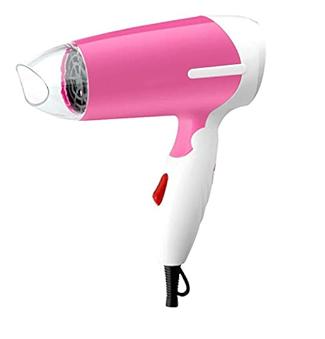
A traditional hair dryer, often referred to as a conventional hair dryer, is a standard tool in hair care that operates by blowing hot air to dry the hair. These dryers use a simple heating element and a fan to evaporate water from the hair. While they lack the ionic technology found in more modern hair dryers, traditional models have their own set of advantages and limitations that make them suitable for various users.
Benefits of Traditional Hair Dryers
Cost-Effectiveness: Traditional hair dryers are generally more affordable than their ionic counterparts. This makes them a popular choice for those who need a functional dryer without a hefty price tag.
Simplicity and Ease of Use: With fewer technological complexities, traditional hair dryers are straightforward to operate. This simplicity is appealing to individuals who prefer a no-frills approach to hair drying.
Widespread Availability: Due to their long history and continued demand, traditional hair dryers are readily available in a wide range of models, designs, and price points. They can be found in almost any store that sells hair care appliances, making them easily accessible.
Reliability: The basic technology behind traditional hair dryers has been tried and tested over decades. These dryers are known for their durability and reliability, often lasting for many years without issues.
Drawbacks of Traditional Hair Dryers
Increased Frizz and Static: Traditional hair dryers can exacerbate frizz and static because they do not emit ions that help neutralize the charge that leads to these issues. This can be particularly problematic for those with naturally frizzy or static-prone hair.
Longer Drying Times: Without the assistance of ionic technology, traditional dryers generally take longer to dry hair completely. Prolonged drying times can increase heat exposure, which may lead to hair damage over time, especially with frequent use.
Heat Damage: Traditional hair dryers might not have advanced heat control features often found in ionic models. Consistent use of high heat can strip moisture from the hair, making it dry, brittle, and susceptible to split ends.
Less Effective on Certain Hair Types: People with thick, curly, or very long hair might find that traditional hair dryers do not meet their needs as effectively. These hair types require more care to dry thoroughly and minimize damage, which might be challenging with a traditional model.
Comparing the Technologies: Ionic vs. Traditional Hair Dryers
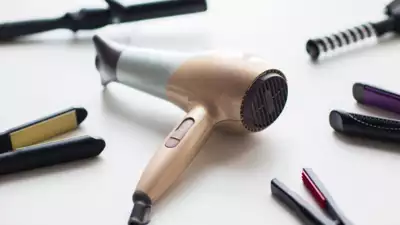
When choosing between ionic and traditional hair dryers, understanding their key differences is crucial. Both types of hair dryers serve the fundamental purpose of drying hair, but they employ distinct technologies that cater to different needs and preferences. Here’s a detailed comparison of ionic and traditional hair dryers, highlighting their technological differences, performance, and suitability for various hair types.
Technological Differences
Ionic Hair Dryers: These dryers incorporate a technology that emits negative ions. The negative ions break down water molecules on the hair more quickly, speeding up the drying process. This technology also helps to close the cuticles of the hair shaft, locking in moisture and reducing frizz.
Traditional Hair Dryers: Traditional models rely solely on heat and the force of air. They use a simple heating element and a fan to evaporate water from the hair. This method is straightforward but lacks the benefits of ion technology, which can lead to different results in terms of hair health and appearance.
Performance and Results
Faster Drying Time: Ionic hair dryers offer a significant advantage in drying time. They are particularly beneficial for those with dense, thick, or long hair, as they can cut drying time by up to 50%. This not only saves time but also reduces the hair’s exposure to heat, potentially lowering the risk of heat damage.
Frizz and Static Control: One of the biggest advantages of ionic hair dryers is their ability to combat frizz and static. The negative ions neutralize the positive ions that cause these issues, resulting in smoother and shinier hair. Traditional hair dryers, without ion technology, often increase frizz and static, especially in dry or humid conditions.
Heat Damage: Traditional hair dryers can pose a higher risk of heat damage because of longer exposure times and less advanced heat controls. This can be particularly detrimental for fine or damaged hair. In contrast, ionic dryers, by reducing drying time, help minimize the time hair is subjected to high temperatures.
Suitability for Hair Types
Ionic Hair Dryers: These are particularly suited for managing difficult hair types, such as frizzy, thick, curly, or highly textured hair. They help maintain the hair’s health and appearance by locking in moisture and reducing frizz.
Traditional Hair Dryers: These may be more suitable for those with fine or thin hair, where quicker drying times and frizz control are less of a concern. They are also a good choice for those who prefer a straightforward, no-frills tool for hair drying.
Cost Consideration
Ionic Hair Dryers: Typically, these are more expensive due to the advanced technology they incorporate. However, the investment might be justified for those who need rapid drying times and wish to maintain optimal hair health.
Traditional Hair Dryers: More budget-friendly, these dryers offer basic drying capabilities without the added cost of ionic technology. They are ideal for users who are looking for a simple and economical option.
Practical Tips for Choosing a Hair Dryer
Consider Your Hair Type: Select a dryer that matches your hair’s needs. Ionic might be better for thick or frizzy hair, while traditional could suffice for fine hair.
Adjustable Settings: Look for dryers with adjustable heat and speed settings. This flexibility can help prevent damage and allows you to customize drying based on your hair’s condition and the style you’re aiming for.
Attachments: Consider models that come with diffusers and concentrators. Diffusers are great for enhancing natural curls, while concentrators can focus airflow for precise styling.
Conclusion
Understanding the differences between ionic and traditional hair dryers can make a significant impact on your daily hair care and styling routine. Whether you opt for the advanced technology of an ionic dryer or the straightforward, reliable performance of a traditional dryer, knowing what each offers will help you make the best choice for your hair type and needs. Remember, the right tools are crucial in achieving healthy, styled hair without compromising its natural beauty and integrity.
Popular Post

Ultimate Guide to Using a Hair Dryer with Nozzle for Styling
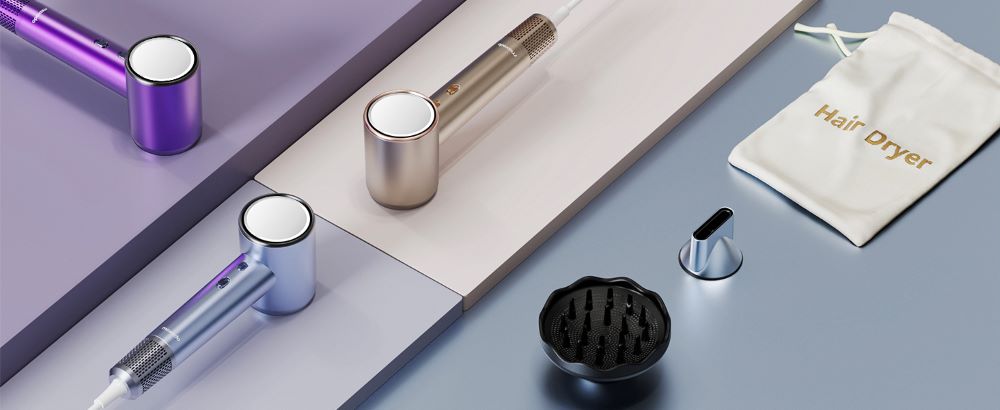
The Benefits of Using a Hair Dryer with a Diffuser
